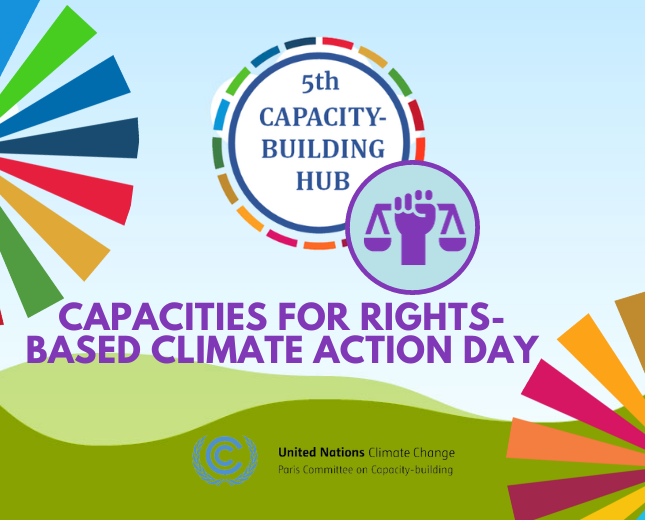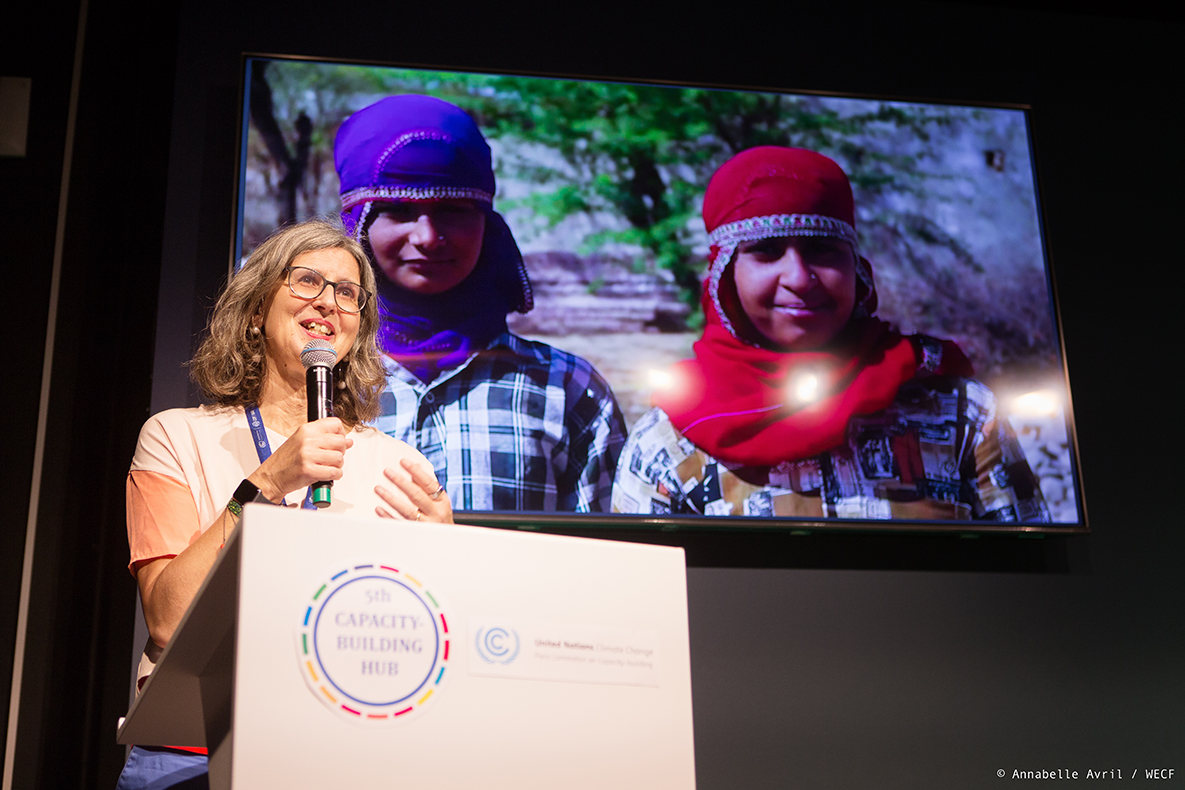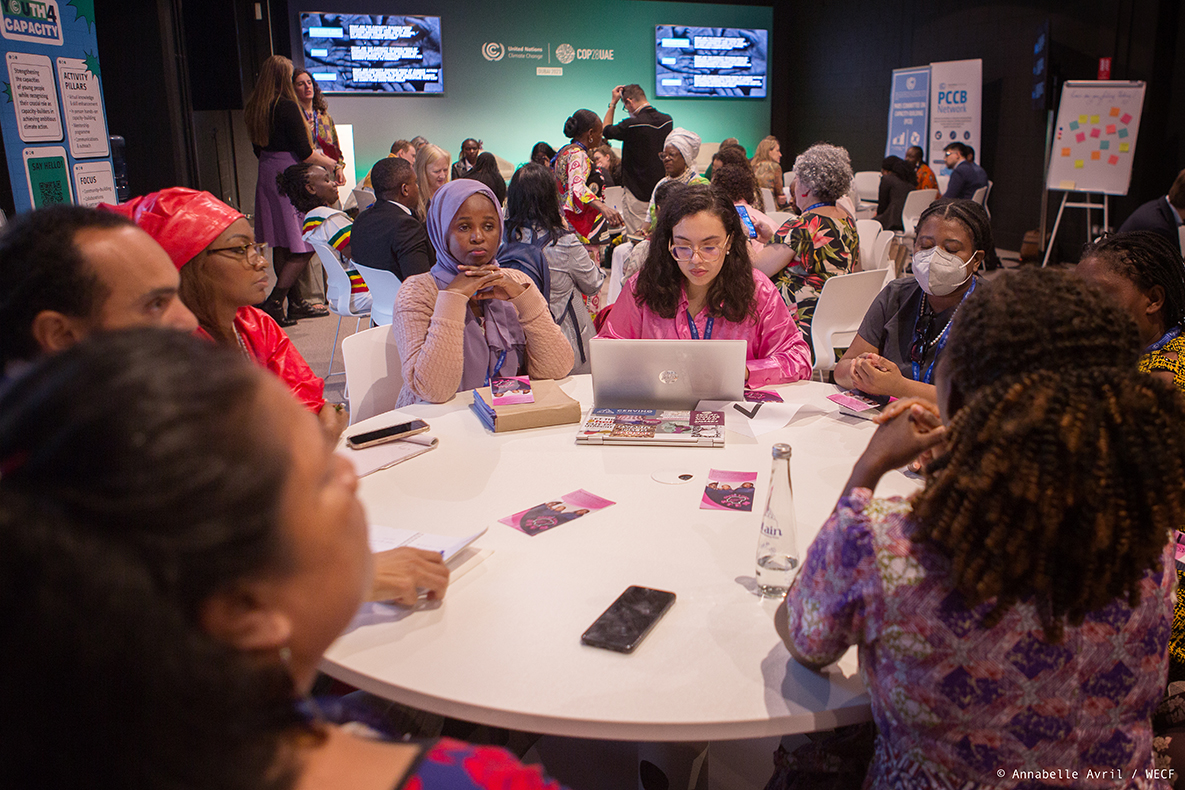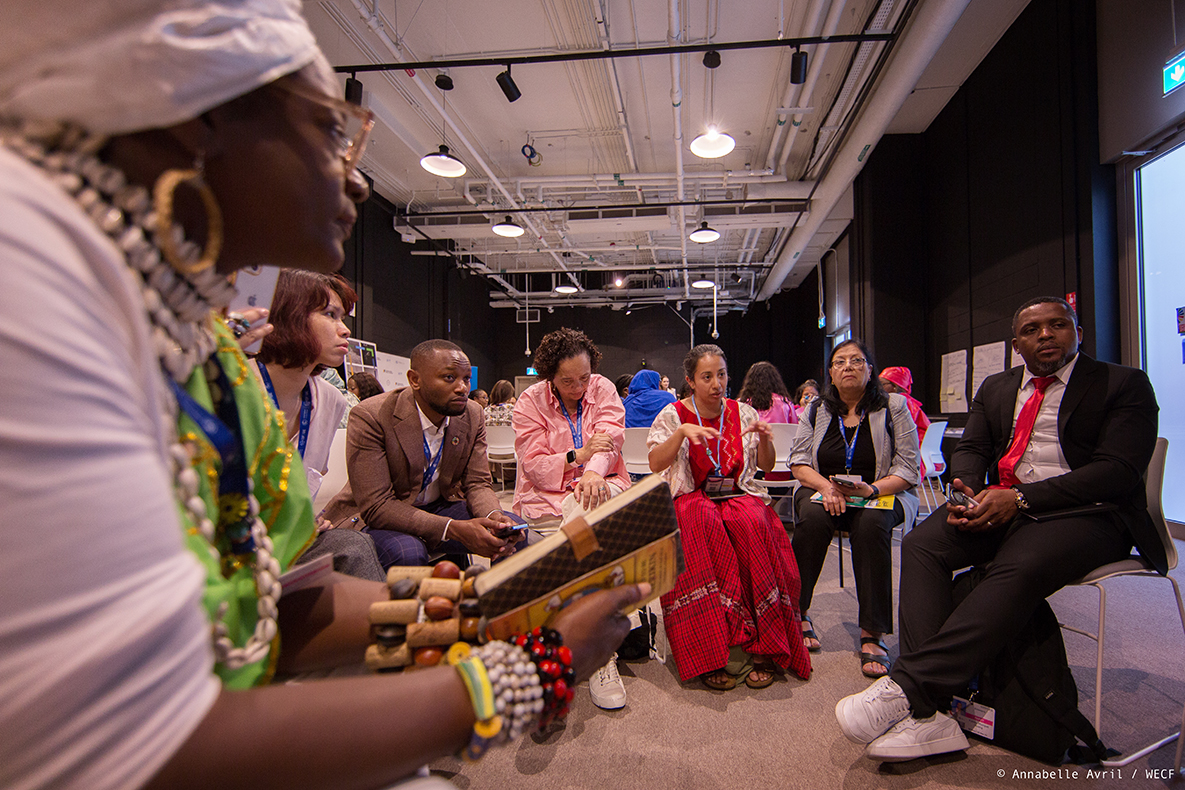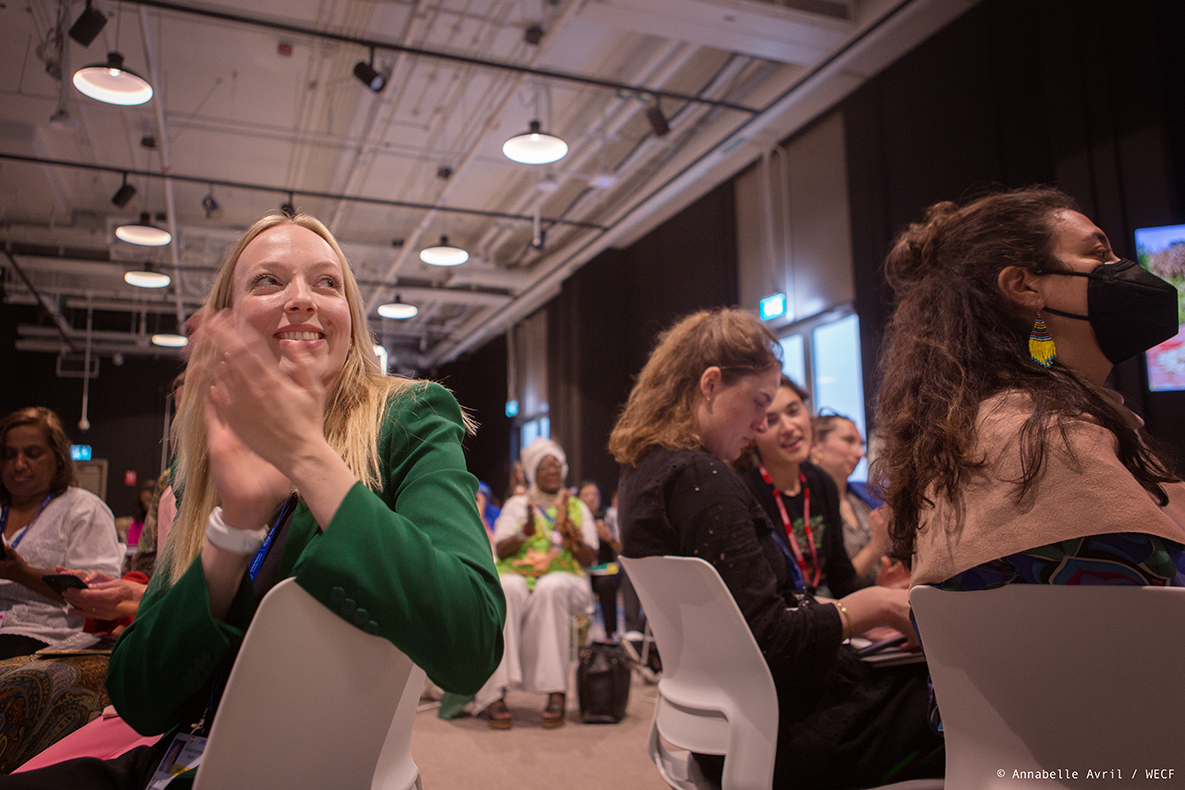Credit: WECF - Annabelle Avril
Recording
Organizers
This event was hosted by Women Engage for a Common Future - International
Background
WECF International is a civil society, not-for-profit, feminist organization based in the Netherlands, Germany, and France, with network partners in over 50 countries particularly from the Global South, working to advance the rights and leadership of women and girls in all their diversity. We co-facilitate the engagement of feminist organizations through the “Women’s Major Group” in the United Nations 2030 Agenda for Sustainable Development and the Women and Gender Constituency at the United Nations Framework Convention on Climate Change (UNFCCC) as well as for the regional Beijing+25 process for the UNECE region. Through this advocacy work, we can support the coordination of capacity-building under and outside of the UNFCCC, maximizing synergies with other networks.
WECF has previously contributed to awareness-raising events for the PCCB’s capacity-building hub at the COPs, showcasing good practices for Parties and non-party stakeholders. In all our projects and programs, we reflect on the priority needs of countries thanks to our constant exchange of information and experiences with civil society organizations based on the ground. We reach out to key stakeholders and push progress towards greater ambition and systemic transformation.
Objectives
-
Fostered a dynamic exchange of ideas, experiences, and expertise, ultimately contributing to the development of more inclusive and effective initiatives at the intersection of gender and climate action.
-
Empowered participants to leverage insights from introductory good practices presented by feminist organizations and social enterprises.
Structure
|
Time
|
Segments & Speakers
|
|
11:40-11:45
|
Welcome by Moderator
- Introduction of topic
- Introduction of world cafe structure
|
|
11:45-11:48
|
Video showcasing 2 GJCS winners, touching upon the various topics under discussion in the world cafe (land rights, representation, bridging ancestral knowledge and technology, the need for funding to upscale, etc.)
|
|
11:48-11:54
|
Opening Words
Federal Government Germany (BMZ), Germany (lena Bretas) TBC
|
|
11:54-12:01
|
Expert presentation
Land Rights & Decision Making
Presenters:
- Ernestine Leikeki: Officer of Cameroon Gender and Environment Watch (CAMGEW)
- Dorothee Lisenga: National coordinator of Coalition des Femmes Leaders pour l'Environnement et le Développement Durable (CFLEDD)
Finance
Presenters:
- Agnes Mirembe: Executive director of ARUWE
- Melano Tskhvaradze: Project coordinator of WECF
-
Technology
Presenters:
- Trupti Jain: Executive director of Naireeta Services
Valeria Peláez: Project manager of WECF
|
|
12:01-12:31
|
Group discussions
|
|
12:31-12:38
|
Experts presenting key recommendations
|
|
12:38-12:40
|
Closing
|
Speakers
|
Name
|
Affiliation/Organization
|
|
Dr. Heike Henn
|
German Federal Ministry for Economic Cooperation and Development (BMZ)
|
|
Ernestine Leikeki
|
Cameroon Gender and Environment Watch (CAMGEW)
|
|
Dorothee Lisenga
|
Coalition des Femmes Leaders pour l'Environnement et le Développement Durable (CFLEDD)
|
|
Trupti Jain
|
Naireeta Services
|
|
Valeria Peláez
|
WECF
|
|
Melano Tskhvaradze
|
WECF
|
|
Agnes Mirembe
|
ARUWE
|
Moderator
Rebecca Heuvelmans, WECF
Key outcomes
-
Climate finance is the key for women participation in climate actions. Take Uganda as an example, women are inaccessible to land rights due to traditional social norms and are very difficult to get loans. These prevent them from taking more proactive climate actions.
-
Innovative technologies can not only address climate change but also contribute to deconstruct gender inequality. The case of rainwater harvesting project in India showed that technologies help local communities, especially women, both adapt to climate change impacts and improve their livelihoods.
Resources
Presentation slides
